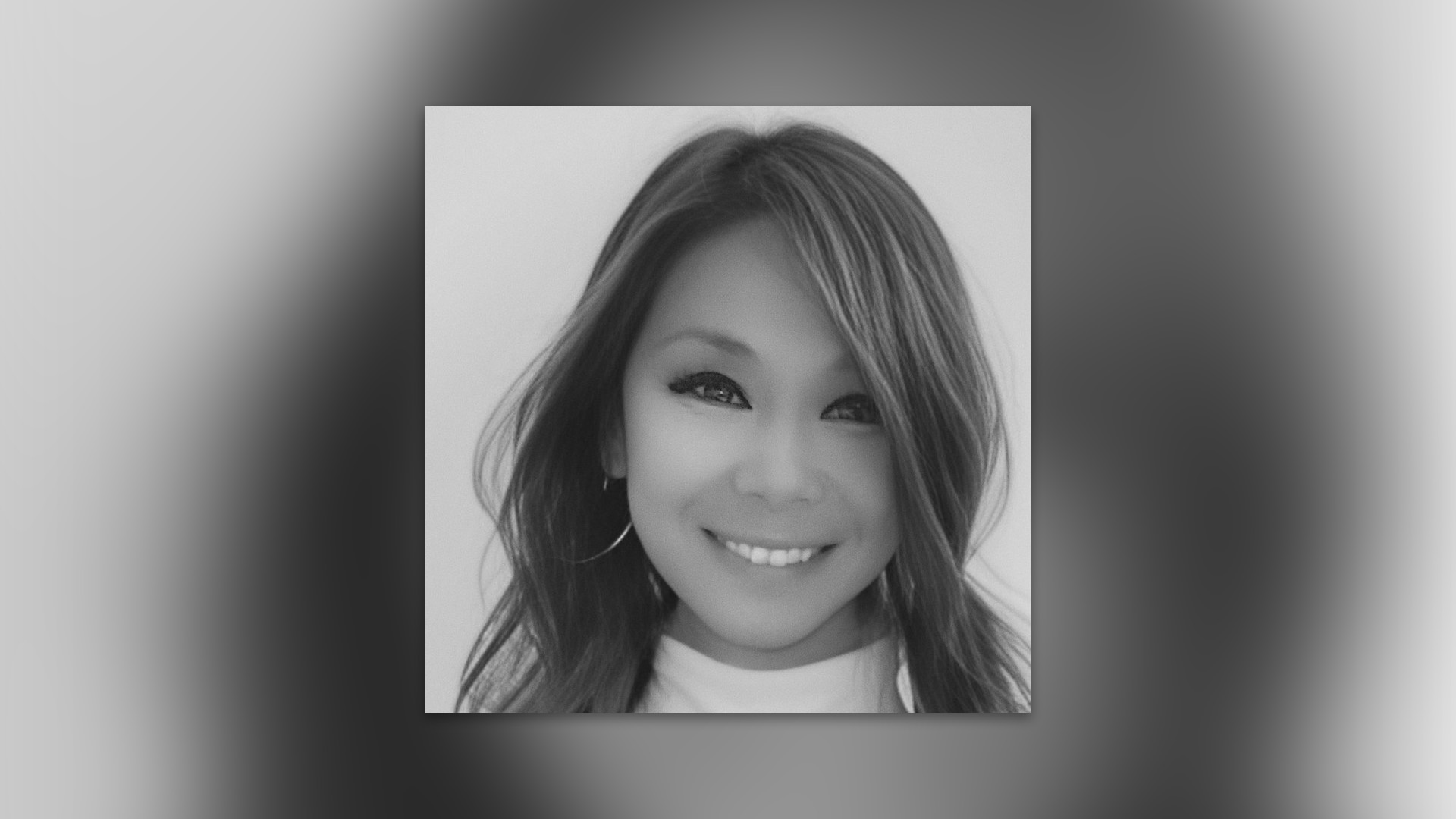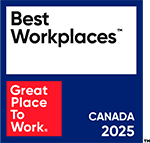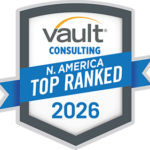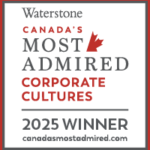
Interview - Winnie Wong
From Passion to Purpose:
Winnie Wong on Embracing Identity and Redefining Success
Kelsey Deutschmann — May 30, 2025
From getting her start in New York’s entertainment industry to leading Marketing and Communications at the College of Family Physicians of Canada, Winnie Wong has navigated industries, borders, and boardrooms.
A Kellogg MBA graduate, and former Partner at Ogilvy, she’s worked with renowned global brands including Disney, Intel, American Express, and Microsoft.
To celebrate Asian Heritage Month, we recently sat down with Winnie to talk about her career journey – we’ve put together this article to share some of the highlights of our conversation.
Winnie’s career has spanned countries, industries, and companies, but the common thread throughout has been her ability to stay grounded in her values.
When I graduated from Kellogg, I was very fortunate to receive multiple job offers, including an opportunity with McKinsey, which many business school graduates would have desired, but I turned it down much to their surprise. At that point in my life, I was getting married and preparing to move across the country. I knew that the consulting lifestyle meant being on the road five days a week without much balance, and that wasn’t the kind of life I wanted to build at that time.
It wasn’t about prestige; it was about alignment with my own values. That decision has become a recurring theme throughout my career, which is to choose what aligns with my life and not what looks impressive on paper.
I’ve had those moments that forced me to stop and ask, ‘Is this what I really want, or what others expect of me?’ A lot of people would have seen that as a missed opportunity with a great organization, but I knew in my gut it wasn’t for me at that stage of my life. Every job is a choice and an opportunity to choose what direction you want to take next. Over time, I’ve learned that the decisions that honor your priorities and values lead to the most meaningful kind of growth.
The journey to becoming a business leader was unconventional, but intentional and driven by Winnie’s passions.
By the end of university and after receiving my Bachelor of Commerce, my dream was to work in the music industry. I turned down offers at companies like Xerox and instead moved to New York on a three-month training visa where I started as a receptionist after cold-calling companies in entertainment. After all, in entertainment, getting your foot in the door with any entry level position was the only way in at that time. Within four years, I was running national publicity at A&M Records (now Universal Music) in New York. I took a risk, but every leap I took, from entertainment to tech to media to education and now healthcare, came from asking myself, “What am I curious about? Where can I make an impact? What am I interested in now and why? What aligns with my personal goals and values?”
Many people get boxed in by their previous title or industry, but every time I made a career move, I led with what I could offer. I have learned to speak clearly about the value and benefits I bring and then let that open new doors.
As an example, after working at OCAD (Ontario College of Art and Design), I realized that I was in a place in my career where I had the flexibility to be more intentional about my next step. I’ve always cared deeply about health and mental health. I’ve done advocacy, board work, and volunteering in these spaces, so I decided to take an opportunity that blended that purpose with my marketing expertise.
I now lead Marketing and Communications for the College of Family Physicians of Canada and serve on several healthcare-related boards and committees. My background was not originally in healthcare, but I was able to bring a fresh perspective. Working in this space feels aligned with who I am and what I care about. Fulfillment doesn’t mean abandoning your skills – it means applying them where they matter most.
Winnie’s perspective on brand and strategy mirrors the values that have defined her career.
Strategic thinking has also always been natural for me and a key part of how I work, but it’s something I’ve continued to strengthen over time. At this stage in my career, I’ve sharpened my strategic thinking skills by teaching and coaching others. In marketing, people tend to jump straight to tactics like emails, social media posts, and quick campaigns without considering the bigger picture.
Throughout my career, I have guided my teams through the process by asking, “What are we trying to achieve?” instead of, “What tactic should we use?” By explaining the importance of strategy and helping others understand their role in it, I’m also continually reminded of how essential strategy is across different business sizes, brand positions, and audiences.
One of the things I’ve been most focused on at CFPC is brand strategy. Many people think brand strategy is just a marketing exercise, but it’s not. A brand strategy should reflect who you are as an organization: your culture, your values, your voice, and it must be embraced across every level, not just by the marketing team. For us, that means articulating what the College truly represents to our 45,000 members. I have friends who are physicians who say, “I just pay my dues,” and that’s it. That tells me we need to do a better job explaining who we are and why we matter.
Brand strategy is ultimately about building relationships and trust. It influences everything from how we speak, to the kinds of people we hire, to how we handle conflict. It shapes our identity from the inside out. If you don’t define your brand clearly, others will define it for you, and not always in ways that reflect the organization’s values or purpose.
With a vibrant background of her own, Winnie came to understand that cultural differences are not obstacles, they are assets.
I was born in Brazil, raised in North America, and I’m of Chinese heritage. I grew up with both Eastern and Western values, and that blend shaped my perspective.
In my career, I’ve done business globally across Japan, Germany, the U.K., Israel, the U.S., and Canada. My background has given me a lens to be open to other people and working environments and truly have an openness and awareness for others.
We all have our heritage, so knowing yourself and your identity is important. Our Asian heritage gives us a cultural perspective and allows for different ways of thinking. I’ve had to navigate stereotypes in my career, but rather than trying to disprove them, I focused on showing up fully as myself.
Knowing what you bring to the table shows confidence and people are going to value that. Be aware of the culture of the environments you are entering into and think about whether those organizational cultures are right for you and align with your values. You can be proud of your heritage and still define your own voice. You don’t have to act a certain way to be successful. Be authentic and stay true to who you are.
Winnie’s advice to emerging leaders is to embrace your identity, develop relationships, and communicate what you bring to the table.
Embrace your identity, but don’t let it limit you or how you think. Advocate for what you deserve, whether that’s a raise, a promotion, or a new opportunity entirely – speak up. Nobody can read your mind, so if something isn’t working, you have a question, or something is bothering you, bring it up in a way that reflects your authenticity and communication style.
Many people, especially when they’re younger in their careers, hesitate to speak up because they don’t want to create problems, they want to fit in, and they want approval. But when you clearly communicate in a manner that is true to yourself, it shows confidence. It shows that you see what’s needed and believe in your own abilities. That’s how you build support, how you grow your career, and how people know what you need.
Having a mentor, or a few mentors, is also incredibly valuable. They can guide you through what you don’t know yet and help you navigate what’s ahead. A lot of decisions are pivotal choices in your life so take the time to think them through.
Showing up as your full self, doing work that matters, and trusting your instincts along the way is what it’s all about. Be authentic. Be bold. Be brave. And keep reaching for what you want and where you want to go. Everyone is on their own journey and everyone’s career path will look different. Most importantly, be true to who you are and make decisions that align with your values. That’s what I’ve tried to do – and that’s what I hope to keep doing.




